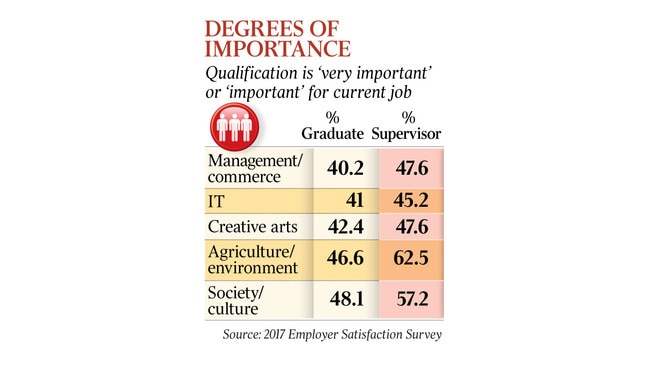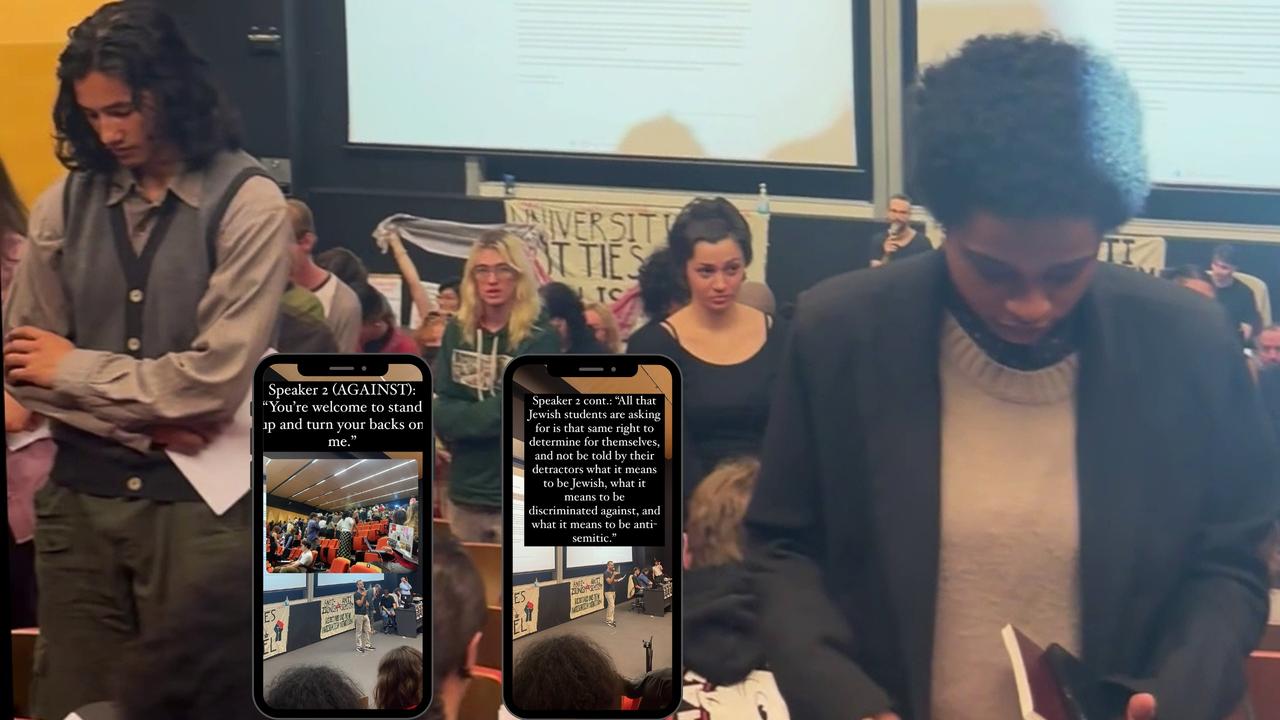University degrees are failing to deliver for business
More than a quarter of the nation’s graduates say their degrees are close to useless for their jobs.

More than a quarter of the nation’s graduates say their degrees are close to useless for their jobs and more than half of employers say management and commerce degrees, the most popular field of study, are not important, raising questions about the value of $17 billion in taxpayer support for universities.
The largest ever survey of Australian employers and employees about the quality of higher education, released today, also reveals that the quality of graduates at eight universities, including the prestigious Australian National University in Canberra, had failed to meet standards at a fifth or more of the businesses surveyed.
Innes Willox, head of employer organisation Australian Industry Group, said the results showed tertiary education was “failing to keep up” with the needs of employers, who were finding some graduates close to unemployable.
But Education Minister Simon Birmingham said government changes to higher education funding announced in December, including a two-year freeze to per student funding of bachelor level degrees and making further increases contingent on performance, would deliver results.
“We should see better outcomes for graduates and better value for taxpayers,” Senator Birmingham said.
More than 10 per cent of graduates surveyed said their qualification was “not at all” important and a further 15 per cent “not that” important for their job. More than half of employers said tertiary credentials in management and commerce, creative arts and information technology were not relevant for the jobs in question.
More than 333,000 students graduated from Australian universities last year, including 102,300 in management and commerce, and 65,000 in society and culture, the second most popular field of study. Higher education will receive about $17bn in federal support this year.
“Supervisors of information technology with 45 per cent (approval), management and commerce, and creative arts graduates, both at 48 per cent, were least likely to think that the qualification was important for current employment,” the study found.
The government-funded Employer Satisfaction Survey,showed an overall satisfaction rating among employers of 84 per cent in 2017, down slightly from a year earlier, with the highest rates observed for more vocationally relevant courses, such as engineering, health, architecture and building, and education over generalist degrees.
Among the 41 universities compared for employer satisfaction, James Cook University received the highest approval rating, 91 per cent, and University of South Queensland the lowest at 77 per cent.
None of the prestigious Go8 “sandstone” universities, in Sydney, Melbourne and Brisbane, appeared in the top five. The University of Adelaide was second last.
“Universities must place student outcomes at the forefront of their considerations to meet the needs of our economy, employers and ultimately boost the employment prospects of graduates,” Senator Birmingham said.
The figures will fuel debate about higher education funding that has raged since the Gillard government uncapped the number of publicly subsidised university places in 2012 and follow news of rising dropout rates and declining job prospects for graduates.

“Employers’ frustration with job applicants often relates to the lack of employability skills that they want and need but often can’t find in new graduates,” Mr Willox said, writing in The Australian today. “There is a long way to go to build the support young people need to develop the capabilities for a rewarding and productive life in the workplace,” he added, suggesting their being “comfortable with an acceleration of technologies — working with people, systems, machines and virtual spaces” was crucial.
In November the government revealed the share of students who complete their degree within six years had dropped to its lowest level recorded at 66 per cent, and short and medium-term employment were still below the highs seen in the last decade.
And the dropout rate, the share who never complete their degree, had stagnated at about 15 per cent, it said.
The survey, which incorporated views of more than 97,000 graduates and 4000 employers, was first conducted in 2016 with a smaller sample of graduates and employers. “This type of data allows students to compare the performance of universities and how courses are viewed by prospective employers to help them make informed choices on university or course selection and what career paths to follow,” Senator Birmingham said.
Universities have come under attack in recent years for paying lavish salaries to a rapidly expanding retinue of administrators. More than 66,600 university employees, or just over 54 per cent of the total, were classified as “non-academic” administrators last year, neither teaching nor conducting research.






To join the conversation, please log in. Don't have an account? Register
Join the conversation, you are commenting as Logout